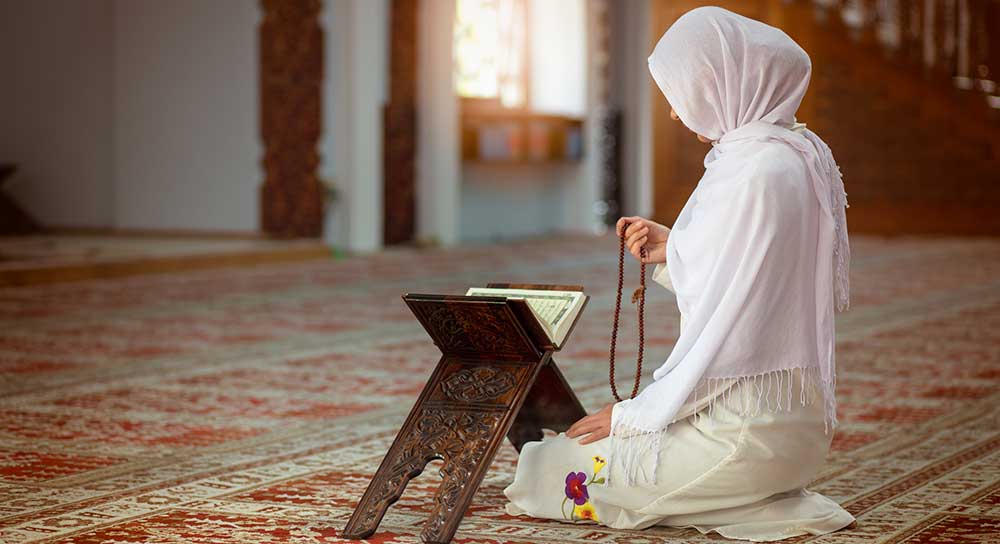Hibah – A Tool for Estate Planning in Islam
In Islam, specific principles and guidelines exist for Muslims to manage their wealth and estate. Understanding these principles is essential for Muslims who wish to follow the teachings of the Al-Quran. This article will explore key elements of one of Islamic estate and financial planning known as Hibah.
These principles of estate planning exist not only as a guide to individuals but also as a means of ensuring justice and fairness in the distribution of wealth. The following discussions will provide an in-depth look at elements of hibah, their importance, and how they are applied in the everyday lives of Muslims.
Definition of Hibah
In Islamic estate planning, hibah is a benevolent contract underlined by a distinct concept of an offer (ijab) and acceptance (qabul). Hibah weaves an unselfish relationship between two parties: the donor and the donee.
As per the hibah agreement, the donor willingly transfers the possession of their property to the donee. What sets Hibah apart is the absence of any expected return or compensation from the donee to the donor.
“But if they give up willingly to you anything of it, then take it in satisfaction and ease.”
Surah al-Nisa (4)
According to a Muslim scholar, Tanzil-ur-Rahman, hibah means “the making of another person the owner of the corpus of the property without taking its consideration from him”.
In short, hibah is a unilateral contract by which a person, during their lifetime, transfers their property with immediate effect and without consideration to another person who accepts it. Simply put, a hibah is a gift made by a Muslim to another person.
Hibah in Holy Al-Quran and Hadith
The following evidence undoubtedly proves the legality and encouragement of hibah in Islam:
Al-Quran 2:117
“But if they, of their own good pleasure, remit any part of it to you, take it and enjoy with right good cheer”.
Hadith of Prophet Muhammad
“Exchange gifts so that you may love another”.
Al-Quran 5:2
“Help another in righteousness and in piety.”
Four Elements of Hibah
(1) Donor
The donor must be the legal owner of the gift, have reached puberty, and possess the property right during the time hibah is made. A donor cannot gift something which they have yet to be an owner of.
(2) Donee
The person receiving the gift can be any person regardless of age, sex, and religion, and he must be legally in existence at the time of the gift. No hibah can be made to an unborn child.
(3) The subject matter of hibah (the gift)
The gift must be of something with value and recognised by Shariah. It must be halal and not forbidden by Islam, such as gifting stolen property or forbidden materials such as alcoholic drinks.
(4) Expression of hibah (offer and acceptance)
The expression in hibah signifies the selflessness and goodwill of the donor, as they willingly give away their property or asset to benefit the recipient without any strings attached. Examples of hibah expressions include the following:
“I made a gift of this thing to you, or I made you the owner of this thing.”
“Now, I gave you a gift out of my property and had you already collected the gift, then it is yours.”
Categories of Hibah
The categories of hibah in Islamic estate planning include conditional hibah (hibah mu’allaqah) and unconditional hibah (hibah mutlaqah). These categories provide different ways of distributing wealth and assets during one’s lifetime, ensuring that the donor’s intentions are fulfilled and their wealth is used following Islamic principles.
Unconditional hibah
- It is a straightforward gift without any conditions attached.
- In the transfer process that is immediate and absolute, the donor transfers ownership of the asset to the donee without any conditions attached.
- The gifted asset is entirely within the donee’s control, allowing them to use and manage it as they please.
- A standout feature of this hibah is its flexibility; It is often used to share wealth amongst family members or to give back to charitable causes generously.
Conditional hibah
- This type of hibah depends on future events or circumstances or is tied to specific conditions related to the use or management of the gifted asset.
- Example 1: A person may gift a property to their child on the condition that the child gets married.
- Example 2: A person may gift a parcel of land to a mosque on the condition that it is used exclusively for religious and charitable endeavours.
- Should the stipulated condition placed by the donor fail to materialise or be observed by the donee, the hibah will not occur.
Who is recommended to use Hibah to distribute their wealth?
All Muslims can use Hibah to distribute their wealth to whomever they desire. It is highly recommended that the following person(s) use Hibah:
- A person with no kids and no surviving legal heirs.
- Parents who have only daughters but no sons.
- Parents who are raising children with disabilities;
- Persons who intend to bestow their properties to their spouses.
- Persons planning to equally distribute their wealth among their recognised legal heirs during their lifetime.
Can hibah be revoked?
A hibah, akin to a gift, can be revoked under two circumstances. These include:
- Before the donee takes possession of the hibah asset or
- In the case of unconditional hibah, it can be revoked before all conditions tied to the hibah arrangement are met.
Essentially, a hibah remains revocable until the contract is fully fulfilled. However, there is an exception to this rule. Hibah offered by parents or grandparents to their children/grandchildren can be revoked at any time, barring two exceptions:
- If the ownership of the hibah asset has been transferred to a third party.
- The hibah asset is encumbered or subject to claims by a third party such as a bank or creditor)
Advantages of Hibah
- The property that is made Hibah will be excluded from faraid, and heirs do not have a right to claim for what was given as Hibah.
- The distribution process of faraid assets can be swiftly carried out with the segregation of hibah.
- Hibah empowers donors with more control, allowing them to distribute assets as per their preference. This is a stark contrast to faraid, as hibah allows the individual to benefit any party they choose throughout their lifetime.
- The autonomy resulting from hibah paves the way for Muslims to support charitable causes dear to them, thereby enabling society to benefit through their wealth.
- Hibah promotes Islamic values of giving and love. It can also strengthen familial bonds and instil goodwill between the donor and donee.
- Hibah is effective immediately and does not require a complicated process, as it is effective immediately when the donor is still alive.
Conclusion
By planning and choosing the right instrument for asset distribution, such as Hibah, you can ensure a smooth transfer of your assets and minimise potential conflicts among beneficiaries. Estate planning allows you to provide for your loved ones and ensure that your assets are distributed according to your wishes.
It is advisable to seek professional advice to ensure your assets are distributed according to your wishes. Consulting with an experienced estate planning lawyer or financial advisor can provide you with the necessary guidance and expertise to make informed decisions.
Frequently asked questions
Can a donor give hibah to non-Muslims?
The answer is yes. Hibah can be made to non-Muslims. In Islam, the general rule provides that non-Muslim heirs have no right to inheritance to property belonging to Muslims. However, hibah is an exception to the above rule. Hibah can be utilised by Muslims with non-Muslim parents or relatives to gift their assets during their lifetime.
Does a donor need permission from their legal heirs to create a hibah?
No permission from their heirs to gift their property to others is required. A person of legal age, sound mind and legally capable of creating a hibah is free to dispose of his property of choice to anyone at their discretion.
How much can a donor give for hibah?
Unlike wills (1/3 of one’s wealth) and faraid, there is no specific allocation and limit for hibah. A donor can offer any amount or any assets (regardless of the amount or value) to any persons they wish during their lifetime.



